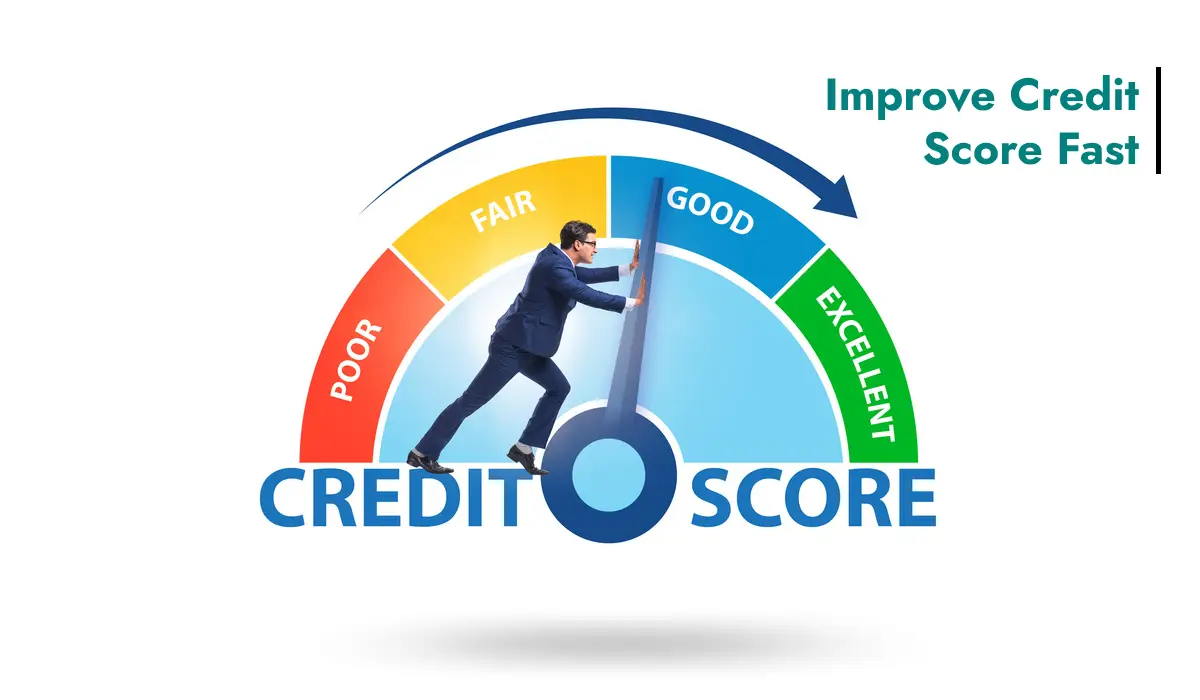Learn five simple steps to improve credit score fast. Boost your score quickly with expert tips and secure better financial opportunities.
A good credit score is helpful when buying your first house, acquiring a personal loan, or refinancing student debt. To improve credit score, you must first understand what factors influence your credit score and then attempt to develop positive habits.
Here are 5 steps to improve credit score
- Pay all of your bills on time.
- Pay off your debts.
- Do not close credit card accounts.
- Limit new credit
- Monitor your credit report
Pay all of your bills on time.
Keep going if you’ve already fallen behind on a few bills. Focus on catching up on past-due expenses. If a debt has already been sent to collections, it’s a good idea to call the creditor; if it still needs to be sent to collections, contact your lender or credit card company and work with them on a payment plan.
First and foremost, it is critical always to pay all of your obligations on time, as on-time payments account for a significant portion of your credit score. Furthermore, if you miss a single monthly payment on a credit card or other loan, it may be sent to collections.
Pay off your debts.
Paying off your debt is one of the most effective ways to enhance your credit score. It will help if you strive for a credit usage ratio of 30% or below, though your score may be impacted before you reach that threshold. This is the amount of money (or credit) you consume compared to your available credit. The lower the usage percentage, the better. This shows lenders that you are responsible and have yet to max out your credit cards and loans.
For example, if your total credit limit on three credit cards is $10,000, but you only use $2,000, your ratio is only 20% (which is OK).
Do not close credit card accounts.
Sometimes, you may assume you should close a credit card account simply because you no longer use it. But think twice before doing this.
Keeping your credit card accounts open for an extended period will benefit your credit score because it increases the duration of your credit history. In some situations, however, you may have to cancel if a credit card includes an annual charge you cannot justify or afford. Remember that it can impact your score, but how much depends on the account.
Limit new credit
You are opening a new credit account, whether a credit card or a loan, will lower your credit score significantly because it generates complex credit queries on your credit report. New accounts will also reduce the average age of your credit, so keep that in mind whenever you register a new account.
It is preferable to minimize or avoid opening only a few new accounts simultaneously, as new credit inquiries can deduct approximately five points from your credit score.
Monitor your credit report
Always monitor your credit score and report it regularly. AnnualCreditReport.com offers a free copy of your credit report once a year.
In addition to reviewing your credit for inaccuracies, search for any signs of identity theft or fraud, such as former addresses or names of employers you never worked for.
Though not always free, all three credit agencies offer credit monitoring services. First, check to see if your bank, credit card issuer, or other financial institution offers this for free; many do.
Once you’ve worked to improve credit score, you must maintain these positive practices. If you keep nurturing your credit, it will continue to rise — and you’ll be the proud owner of that beautiful, high credit score you’ve always desired.
Continue Reading: How to Repair Your Credit Score
Credit Repair Companies May Also Help You Improve Credit Score

- Certified pre-approval Process
- Online Application Available 24/7
- Find a Quote Easily
4
editorial team. We score based on factors
that are helpful for consumers, such as
how it affects credit scores, the rates and
fees charged, the customer experience,
and responsible lending practices.

- Certified pre-approval Process
- Online Application Available 24/7
- Find a Quote Easily
- 100% Online Refinance
4.5
editorial team. We score based on factors
that are helpful for consumers, such as
how it affects credit scores, the rates and
fees charged, the customer experience,
and responsible lending practices.

- Boost Credit Score
- Personal Loans
- Credit repair services
5
editorial team. We score based on factors
that are helpful for consumers, such as
how it affects credit scores, the rates and
fees charged, the customer experience,
and responsible lending practices.
- Big or Small Loan
- All Credit Types
- Fast Funding
4
editorial team. We score based on factors
that are helpful for consumers, such as
how it affects credit scores, the rates and
fees charged, the customer experience,
and responsible lending practices.

- High approval rates
- Financial guidance
- Unlimited access to credit options
4
editorial team. We score based on factors
that are helpful for consumers, such as
how it affects credit scores, the rates and
fees charged, the customer experience,
and responsible lending practices.

- Credit monitoring
- Personalized credit tips
- TransUnion® credit report and score
4.6
editorial team. We score based on factors
that are helpful for consumers, such as
how it affects credit scores, the rates and
fees charged, the customer experience,
and responsible lending practices.

- Provide tax advice
- Debt relief services
- Credit repair services
4
editorial team. We score based on factors
that are helpful for consumers, such as
how it affects credit scores, the rates and
fees charged, the customer experience,
and responsible lending practices.

- Est. APR = 0%
- Fees = None
- Recommended Credit = None
3.6
editorial team. We score based on factors
that are helpful for consumers, such as
how it affects credit scores, the rates and
fees charged, the customer experience,
and responsible lending practices.


 Read More
Read More 





One Response